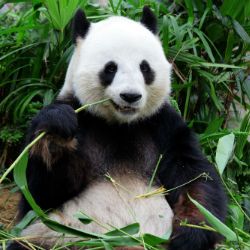Washington Panda Returned To China

Last year Washington D.C.’s Smithsonian National Zoo had to say goodbye to Bei Bei the panda who was returned to China. He was flown by private FedEx plane non-stop to Chengdu. Millions of people in the US and around the world have watched Bei Bei mature into an adult either by visiting the National Zoo or online thanks to the panda cam. Bei Bei was born in 2015 and that year the then First Lady of the US Michelle Obama and her Chinese counterpart Peng Liyuan named him.
Completely expected
Despite current tensions between the two countries, Brandie Smith a spokesperson for the National Zoo said they have known from the beginning that Bei Bei would leave one day. This is because there is a standard loan agreement China has with zoos globally which states that any panda cub born abroad continues to belong to the birth country until the age of 4. At that age, the panda must be sent to research centres in China for breeding and last year, Bei Bei reached the age of 4.
Pandas are a privilege
There aren’t that many countries around the world that have the privilege of serving as home for giant pandas with only 500 housed in zoos and breeding centres globally. It is China’s decision where to send the pandas and zoos lucky enough to receive one have their status boosted significantly. Beijing began using pandas as ambassadors of goodwill back in the 1950s. The first two pandas were sent to the US in 1972 immediately following Nixon’s historic China visit after then First Lady Pat Nixon said she loved the animals.
Not cheap
In 1984 US Fish and Wildlife Service classified giant pandas as endangered and the PRC government began to loan the bears instead. The bears are usually loaned by China in pairs for a period of ten years and zoos typically pay annual fees of as much as $1 million and should there be a panda birth an extra one-time fee of $400,000 is charged to the zoos. The reason for the ten year time frame is that a loan term shorter than that may violate the terms of CITE which protects endangered species from becoming commercialised in international trade.



